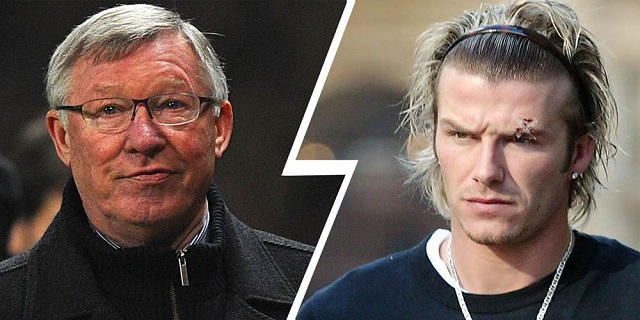Excluded but Inspired: Hamilton and Mercedes Find Hope in the US Grand Prix
Sir Alex Ferguson, known for his need for control, had a tumultuous relationship with David Beckham, the world’s most famous player. When Beckham left for Real Madrid in 2003, Manchester United simply couldn’t contain them both.
Beckham’s global fame in the early 2000s was unparalleled in the Premier League. Thousands would gather to watch him even outside football events, marking him as a global icon.
Beckham’s personal brand, business ventures, and a massive following set him apart. Ferguson, a manager who believed in control, struggled to manage this. Beckham challenged his authority early in his career, long before he met Victoria Beckham.
In his autobiography, Beckham mentioned his partnership with super-agent Tony Stephens, causing friction between Stephens and Ferguson. On a football level, Beckham admired Fergie for believing in youth development. But Beckham’s work-rate, both on and off the field, sometimes questioned the culture Ferguson had established at Old Trafford.
Ferguson’s motivation was to ensure that players maintained peak fitness and freshness for match days, even if it meant controlling their off-field activities. Beckham didn’t always inform the manager of his trips, and this didn’t sit well with Ferguson.
In a memorable incident, Beckham missed training to care for his sick child, and Ferguson inquired about Victoria’s absence. The disagreement and the infamous “Flying Boot” incident in February 2003 marked the culmination of several power struggles.
Lewis Hamilton: A Tale of Triumph and Disqualification
In his autobiography, Beckham acknowledged that his partnership with Tony Stephens and his relationship with Fergie weren’t compatible. He also recalled flying to Ireland for a weekend with Victoria without informing Ferguson, leading to a falling out.
Ferguson, shaped by the football-centric culture in Glasgow, couldn’t understand why a player of Beckham’s talent would prioritize fame over winning trophies. He believed that Beckham had lost the chance to become an all-time great player by choosing celebrity status.
Beckham left Manchester United for Real Madrid at the age of 28, and though his commercial success continued, he was never the same player. In football terms, Ferguson’s view seemed to hold weight.
Beckham’s fame grew on the international stage, but his performances fluctuated. The relationship between Beckham and Ferguson was beyond repair. While the “Flying Boot” incident dominated headlines, Ferguson sensed an opportunity.
Ferguson held a press conference before a Champions League tie against Juventus, publicly addressing the situation and highlighting the importance of trust in the dressing room. It was a clear message that Beckham had breached that trust.
Beckham’s departure followed, with a young Cristiano Ronaldo signed as his long-term replacement. Over the years, the relationship between Ferguson and Beckham has mellowed, but the same cannot be said for Ferguson’s relationship with Roy Keane.
Beckham now refers to Ferguson as “The Boss” and acknowledges the mistakes he made in his youth. Ferguson, nearing his 79th birthday, has no lingering issues with Beckham. They later collaborated as UNICEF ambassadors to support underprivileged children worldwide.




[…] […]